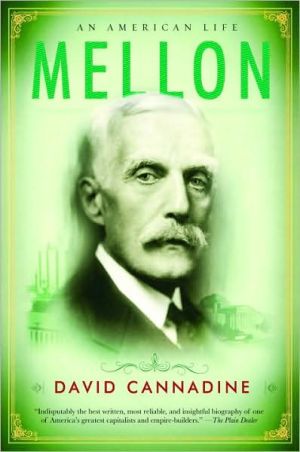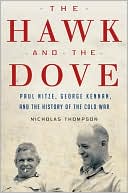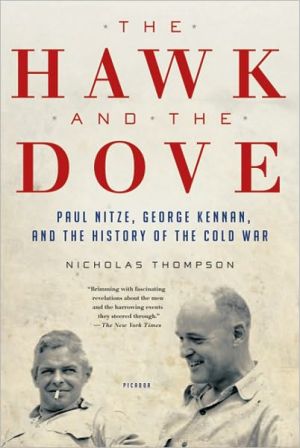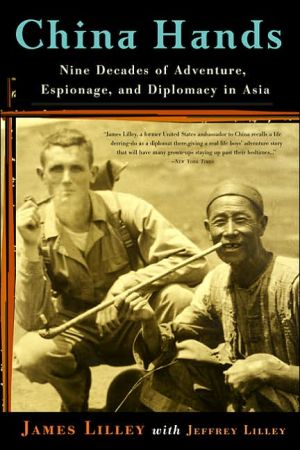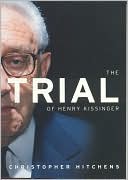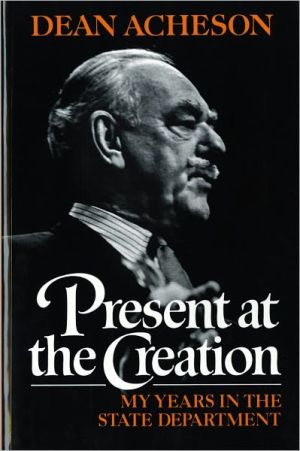Chasing the Flame: One Man's Fight to Save the World
In this perfect match of author and subject, Pulitzer Prize-winner Samantha Power tackles the life of Sergio Vieira de Mello, whose work for the U.N. before his 2003 death in Iraq was emblematic of moral struggle on the global stage. Power has drawn on a staggering breadth of research (including 400 interviews) to show us a heroic figure and the conflicts he waded into, from Cambodia's Khmer Rouge to the slaughter in Bosnia to the war-torn Middle East. The result is a peerless portrait of...
Search in google:
In this perfect match of author and subject, Pulitzer Prize-winner Samantha Power tackles the life of Sergio Vieira de Mello, whose work for the U.N. before his 2003 death in Iraq was emblematic of moral struggle on the global stage. Power has drawn on a staggering breadth of research (including 400 interviews) to show us a heroic figure and the conflicts he waded into, from Cambodia's Khmer Rouge to the slaughter in Bosnia to the war-torn Middle East. The result is a peerless portrait of humanity and pragmatism, as well as a history of our convulsive age. The Barnes & Noble Review For those of us outside "the family" -- as career United Nations workers call their own ranks -- it is probably impossible to imagine the thoughts and feelings now associated with August 19, 2003. Nor, to tell the truth, do many of us try. On that date, a suicide bomber drove a truck into UN headquarters in Baghdad, killing 22 people. By now everyone in the world recognizes the date "9/11," and the subway attacks in London during the summer of 2005 are now often referred to as "7/7." But the UN bombing (carried out, like these other two, by Al Qaeda) faded from the world's memory without so much as the trace of a historical shorthand expression.
Chronology ixIntroduction 1Part IDisplaced 15"I Will Never Use the Word 'Unacceptable' Again" 34Blood Running Blue 55Hitting the Ground Running 75"Black Boxing" 97White Car Syndrome 115"Sandwiches at the Gates" 134"Serbio" 159In Retrospect 180Damned If You Do 191Part II"Giving War a Chance" 225Independence in Action 249Viceroy 265Benevolent Dictator 286Hoarding Power, Hoarding Blame 303"A New Sergio" 323Part III"Fear Is a Bad Adviser" 347"Don't Ask Who Started the Fire" 374"You Can't Help People from a Distance" 396Rebuffed 421August 19, 2003 451Postmortem 496Epilogue 517Acknowledgments 536Notes 542List of Interviews 592Index 597
\ James MannIn Chasing the Flame, Samantha Power set out not merely to write a biography of Vieira de Mello, but also to glean from his life some larger lessons. The underlying questions are profound ones: how the international community should cope with ethnic unrest, civil wars and genocide; how much power the world's governments should give to the United Nations; how much difference one person can make. Her book is an ambitious effort, a long, meandering narrative that in the end succeeds brilliantly…The strength of the book lies in Power's use of Vieira de Mello's life (and death) as a well-placed window on the international community's successes and failures. There have been several other good books about the United Nations, but they are told from the perspective of New York. Power looks at the U.N. from the field.\ —The Washington Post\ \ \ \ \ Publishers WeeklyThe death of the charismatic Brazilian chief of the U.N. Mission to Iraq in a 2003 terrorist bombing symbolized both the U.N.'s haplessness-he died because rescuers lacked the training and equipment to free him from the rubble-and its idealism. In this sprawling biography, Vieira de Mello's life symbolizes the tragic contradictions of coping with humanitarian crises. Journalist Power, author of the Pulitzer-winning The Problem from Hell: America and the Age of Genocide, follows Vieira de Mello through a U.N. career spent in hot spots like Cambodia, Rwanda, Bosnia and Kosovo. His tasks were many: implementing peace accords, settling refugees, overseeing elections, running the government of East Timor. In each posting, he confronts a hydra-headed monster of communal violence and poverty, plus difficulties compounded by U.N. red tape, miserly budgets and uncaring Western governments. Agonizing dilemmas abound. Should refugees be fed or sent home? Should U.N. peacekeepers observe or intervene? Should past atrocities be prosecuted or overlooked? Playing by ear, Vieira de Mello charts an erratic course through these conundrums. Sometimes he's a human rights zealot, sometimes he cozies up to the Khmer Rouge; sometimes he negotiates with the Serbs, sometimes he wants to bomb them.\ Vieira de Mello comes off as a charming diplomat, a canny politician and an inspiring leader, and the author celebrates his flexibility and pragmatism (while criticizing his failures). Power wants to extract lasting lessons for the international community's efforts to head off humanitarian catastrophes and mend failed states from his experience. Unfortunately, it's hard to discern through hisimprovisations any systematic approach to nation building or to such vexed issues as humanitarian military intervention and regime change. The lack of perspective isn't helped by the biographical format, as the peripatetic Vieira de Mello jets from one conflagration to the next, then on to a romantic getaway with a mistress or to give a murky speech on Kant. We get the impression that U.N. missions are inevitably a hopeless muddle unless Sergio, with his unique talents, parachutes in to fix things; the book may thus inadvertently encourage critics of the U.N.-style interventionism that Power supports. Readers will gain an appreciation of Vieira de Mello's gifts, but not the method to his magic. B&w photos. (Mar. 6)\ Copyright 2007 Reed Business Information\ \ \ Library JournalSergio Vieira de Mello (1948-2003) was a career UN employee who died in Baghdad doing what he had long done: trying to bring relief to those in situations of international conflict. He had worked in most of the hotspots of the last quarter century, including Cambodia, the Balkans, East Timor, and Rwanda, and his success led to his increasing responsibility within the UN. A practical man of action, happiest doing fieldwork yet also a thinker (he had a doctorate in philosophy), he was keenly aware of the moral ambiguities in refugee situations, where bringing relief to the innocent requires working withthe malefactors rather than pursuing immediate justice againstthem. Power (global leadership & public policy, Kennedy Sch. of Government, Harvard) emphasizes these paradoxes and complexities and the varying adaptations that Vieira de Mello was forced to make to resolve the issues at hand. Her approach is similar to her earlier, award-winning A Problem from Hell: America and the Age of Genocide. Most of her text covers the last six years of her subject's career, in great day-to-day detail, with his earlier years covered only briefly. Powers has brought to life, for both general and specialist readers, a complex figure who dared to take on the greatest challenges, always seeking to reach even higher. Highly recommended for all collections.\ —Marcia L. Sprules\ \ \ \ \ \ Kirkus ReviewsBiography of the handsome Brazilian intellectual who served as the UN's top troubleshooter from East Timor and Bosnia to Iraq, where he died in a terrorist car bombing. Pulitzer Prize-winner Power (Global Leadership/Harvard School of Government; "A Problem From Hell": American and the Age of Genocide, 2002) draws on more than 400 interviews to offer this detailed portrait of charismatic Sergio Vieira de Mello (1948-2003), whom she first met in 1994 while working as a young reporter. A diplomat's son, Sergio (as he was generally known) earned a doctorate in philosophy at the Sorbonne and took part in the Paris student revolt in May 1968. He joined the office of the UN High Commissioner for Refugees in 1969 and remained with the organization until his death. Writing with a keen understanding of international affairs, Power traces each step of Sergio's career: early humanitarian postings in Sudan, Mozambique and Peru; his initial encounter with terrorism in 1981 as a UN political advisor in Lebanon; and later work in Hong Kong and Cambodia that made his reputation as a pragmatic negotiator. Power describes a man who was always learning, reaching out to everyone from taxi drivers to thugs in the belief that to resolve problems all must be heard. An elegant charmer in his starched shirts and tailored suits, Sergio was a ladies' man who frequently bedded colleagues and a deeply loyal UN official who neglected his wife and two children. Power shows how his winning ways, knowledge of Kantian philosophy and deep regard for the dignity of both people and nations made him a force for change. Her description of failed attempts to rescue Sergio from the rubble of the UN's quarters in Baghdad, where hewas Secretary General Kofi Annan's special representative, is both riveting and heartbreaking. A well-rendered account of one of the UN's best in pursuit of "the flame of idealism that motivated many to strive to combat injustice and that inspired the vulnerable to believe that help would soon come."\ \ \ \ \ The Barnes & Noble ReviewFor those of us outside "the family" -- as career United Nations workers call their own ranks -- it is probably impossible to imagine the thoughts and feelings now associated with August 19, 2003. Nor, to tell the truth, do many of us try. On that date, a suicide bomber drove a truck into UN headquarters in Baghdad, killing 22 people. By now everyone in the world recognizes the date "9/11," and the subway attacks in London during the summer of 2005 are now often referred to as "7/7." But the UN bombing (carried out, like these other two, by Al Qaeda) faded from the world's memory without so much as the trace of a historical shorthand expression. \ Among the dead was Sergio Vieira de Mello, who was overseeing the UN's activities in Iraq: a beloved and rather legendary figure, at least within the family. He had charisma; he was tireless; no one could long doubt his itch to leave the office and go out into troubled areas. His qualities even inspired grudging admiration from within the Bush administration -- no small trick. In Chasing the Flame: Sergio Vieira de Mello and the Fight to Save the World, Samantha Power quotes an adviser to Paul Bremer, the head of the American occupation. "Sergio is as good as it gets," the adviser said, "not only in the UN, but in international diplomacy. He is the personification of what the UN could be, and should be, but rarely is."\ His biographer is not a member of the immediate family, so to speak, but a kind of in-law. Samantha Power's earlier (and Pulitzer-winning) book, "A Problem from Hell": America and the Age of Genocide, is an argument for the doctrine of humanitarian interventionism; that is, the activist defense of human rights by the international community, which in practice has often meant some confluence of U.S. military power and UN relief efforts. Power first met Vieira de Mello in 1994 -- not that long after the end of the Cold War, when dreams of a humanitarian and cosmopolitan foreign policy were much in the air. But with hindsight, the circumstances of their initial conversation clearly spelled out the limits of that vision. They met in what was fast becoming "the former Yugoslavia." She was covering the conflict as a journalist, while Vieira de Mello was part of the UN peacekeeping effort.\ I mention these geopolitical and historical markers because without them it seems impossible to appreciate how many issues are at stake in Chasing the Flame -- and how many of them are left hanging for the perplexed reader. This is not a book of foreign-policy wonkery. It is a detailed portrait of a man whose career was a hellish itinerary of missions served in Lebanon, Cambodia, Rwanda, Bosnia, East Timor, Kosovo, and finally Iraq. He did not simply work for the United Nations; he was a UN man down to his cells, almost. So the organization's inner culture and structural problems are as important for understanding his personality as any element in his personal background. But few of us have more than a vague idea of what goes on within the UN, other than angry speechifying.\ Power wants to bring us into a world of action that is heroic (in which literally life-and-death decisions unfold on the world stage) while at the same time constantly bogged down by bureaucratic infighting and hardball Realpolitik. Vieira de Mello, the son of a Brazilian diplomat who was forced into early retirement following a military coup, did not set out to work for the United Nations. He was a philosophy student in Paris during the seismic "events of May '68," when radical students and factory workers launched a general strike. A statement he published at the time, full of revolutionary fervor, made it likely that he would be detained by the Brazilian authorities if he returned home. The labor market for professional philosophers being what it is, he took employment with the UN in 1969.\ He found a mentor within the organization -- a shrewd old functionary who knew how to cover his idealism with a protective, cynical coating. What began as a bureaucratic day job to pay the bills as Vieira de Mello worked toward an advanced degree in philosophy turned into a vehicle for international political activism. "By the 1980s he had come to see himself as a UN man," writes Power, "but since the organization was both a body of self-interested governments and a body of ideals, he did not seem sure yet whether serving the UN meant doing what states wanted or pressing for what refugees needed."\ Framed so starkly, one supposes that Vieira de Mello finally had to choose between these options. But what Power describes as his growing pragmatism throughout the 1990s was an effort to reconcile them -- and to go still further when necessary, doing whatever it took to contain the crises he was sent to manage. He was willing to work with Khmer Rouge leaders or to become so amicable toward Slobodan Milosevic that people nicknamed him "Serbio" Vieira de Mello.\ "If his ever-evolving approach could be summed up," writes Power, "it would be: Talk to rogues, attempt to understand what makes them tick, extract concessions from them whenever possible, but remain clear about who they are and what they have done, as well as what you stand for. Past sins mattered not just intrinsically but because they were predictive of future behaviors."\ Much practical wisdom is condensed in that advice, of course. Yet between the lines of Chasing the Flame there always seems to be a question that remain unanswered because never fully posed: just what legacy did Vieira de Mello leave? His efforts in Asia, Africa, and the Balkans were courageous but doomed; and his role in Iraq, after all, was to mitigate the damage following a war that the UN could not prevent. (Indeed, most of the arguments for humanitarian interventionism were spun, quite successfully, as rationales for Desert Storm.) To be sure, Sergio Vieira de Mello emerges from Power's book as a heroic figure. But there were times, while reading it, when I thought that surely the League of Nations must have had its impressive personnel, too. --Scott McLemee\ Scott McLemee writes the weekly column Intellectual Affairs [ http://www.insidehighered.com/views/intellectual_affairs ] for Inside Higher Ed. He is a member of the board of directors of the National Book Critics Circle. In 2004, he won the NBCC's award for excellence in reviewing.\ \ \


